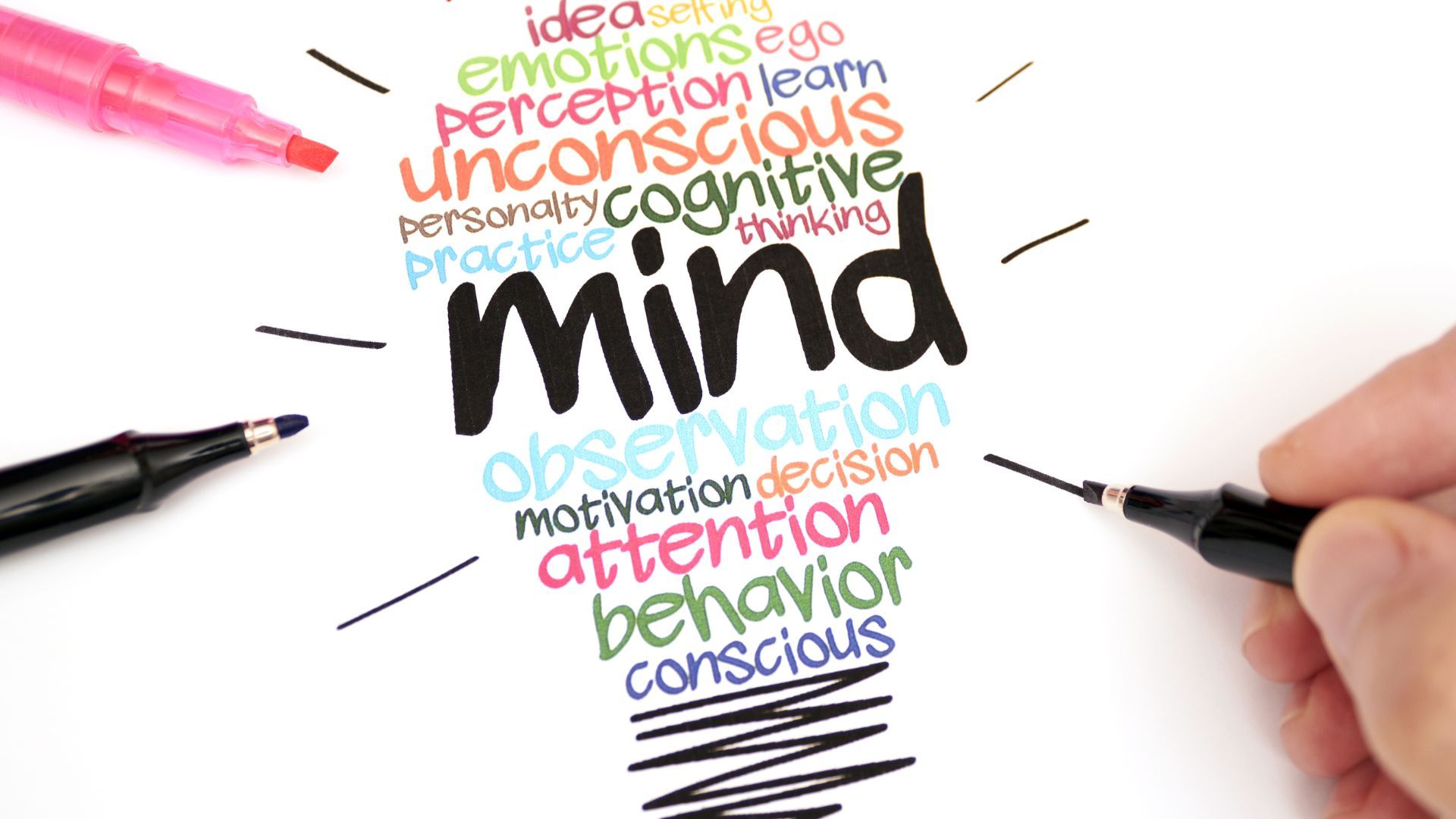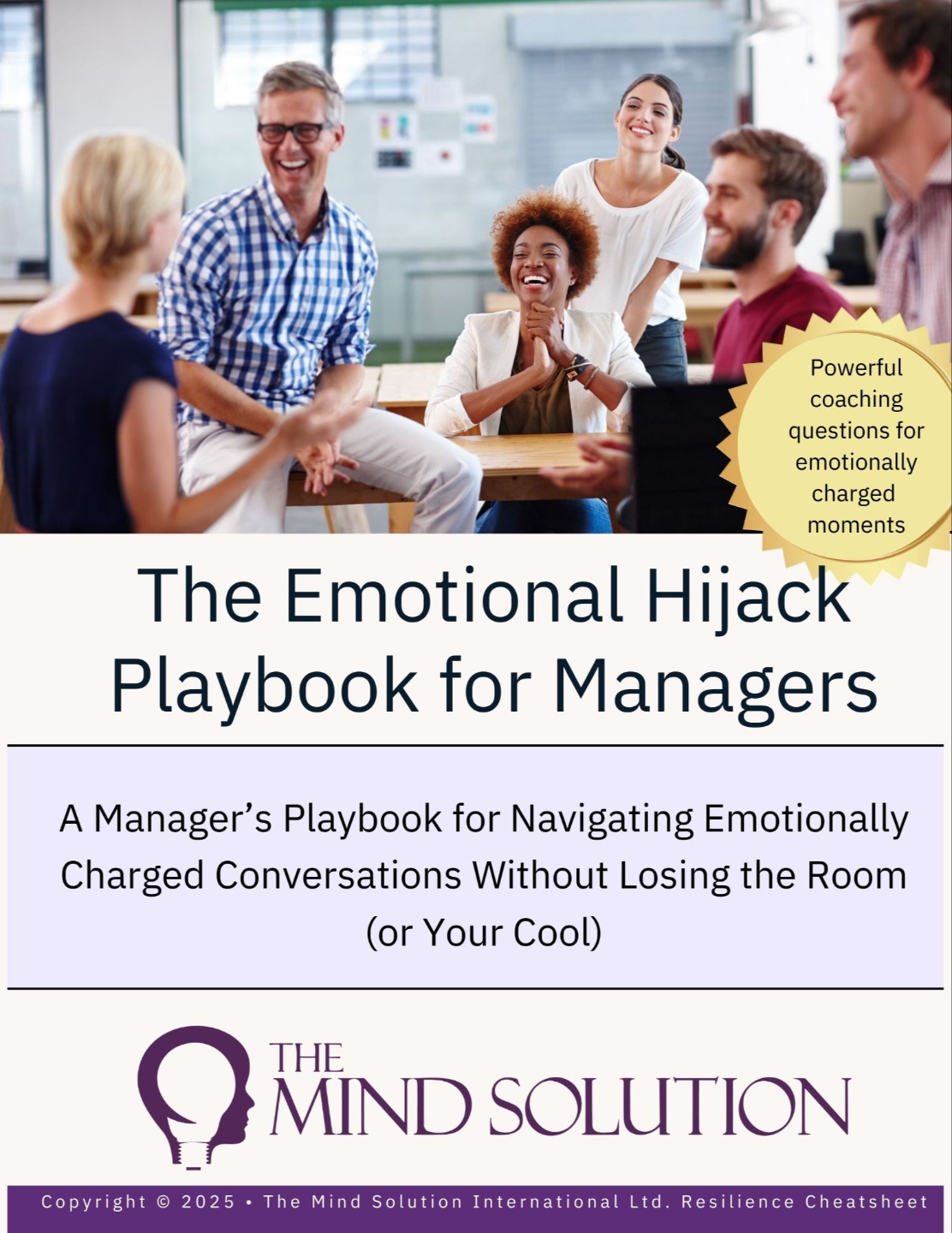The Truth About Self-Awareness No Workplace Can Afford to Ignore
Jul 07, 2025
If you’ve ever attended one of my employee wellbeing webinars, you might have noticed the bookcase behind me. It’s lined with over a decade’s worth of journals—each one filled with thoughts, breakthroughs, and the sometimes-cringeworthy evidence of my evolving self-awareness.
Like many people, I once believed I was pretty self-aware. But those journals say otherwise.
What they really reveal is a woman on a journey. From corporate HR to therapist to founder of a global wellbeing company, I’ve spent the last 20 years unpicking the complex relationship between self-awareness, consciousness, and performance. And in every setting—from therapy rooms to boardrooms—I’ve seen one truth emerge again and again:
Self-awareness is not optional if you want sustainable wellbeing, exceptional leadership, or high performance.
Yet in most organisations, it’s still misunderstood—or completely overlooked.
Let’s change that.
Self-Awareness Isn’t Soft — It’s Strategic
You don’t have to be a coach, a yogi, or a therapist to benefit from self-awareness. You just have to be human.
Why? Because our thoughts, beliefs, and patterns of perception shape every conversation, every decision, every result.
When self-awareness is missing in a team or culture, here’s what tends to show up instead:
-
Emotional reactivity
-
Defensive behaviour
-
Poor decision-making under pressure
-
Burnout masked as “resilience”
-
Micromanagement and control
-
Leaders who inspire fear, not trust
Sound familiar?
Self-awareness is what allows someone to hit pause. To reflect. To own their impact. And without that, no amount of productivity tools or leadership frameworks will create lasting change.
And from a talent and performance perspective, self-awareness is one of the most critical capabilities for career development. Employees who are self-aware are better equipped to:
-
Navigate feedback constructively
-
Understand how they’re perceived
-
Identify areas for growth and development
-
Lead others with empathy and presence
When leaders lack self-awareness, they often overestimate their strengths and underestimate their impact. The result? Disengaged teams and stalled progression.
So What Is Self-Awareness, Really?
Most HR leaders have come across self-awareness in the form of psychometrics—think Insights, DISC, Myers-Briggs. And while these can be useful starting points, they often sit untouched in a drawer after the team offsite.
True self-awareness isn’t a colour code or a label.
It’s the ongoing ability to:
-
Recognise your thoughts, emotions, and patterns in real-time
-
Separate reaction from the response
-
See the stories you’re telling yourself—and question them
-
Understand how you’re showing up and why
In other words, it’s not just knowing yourself—it’s observing yourself without judgement.
And the deeper that observation goes, the more it opens the door to something even more powerful: consciousness.
Self-Awareness vs. Consciousness: What’s the Difference?
Think of self-awareness as the foundation. It’s the flashlight you shine inward.
Consciousness is the room it lights up.
Where self-awareness helps you become aware of your patterns, consciousness helps you transcend them. It’s the shift from:
-
"I’m feeling anxious" → to → "I can observe my anxious thoughts, but I am not those thoughts."
-
"They made me feel this way" → to → "I can see how my interpretation of their actions triggered an old story."
-
"I need to fix this" → to → "I can hold space for what’s present without collapsing into reaction."
In short, consciousness expands your perceptual field. And that’s what transforms not just performance—but culture.
While self-awareness is the ability to witness your thoughts and emotional responses, consciousness invites you to connect to something deeper. It’s about recognising that your identity is not fixed. It’s fluid, dynamic, and capable of evolving at every moment.
As leaders and HR professionals begin to experience this shift, they move from control to trust, from defensiveness to curiosity, and from stress to flow. And this doesn’t just transform individuals. It transforms entire systems.
Why HR and Wellbeing Leaders Should Care
If you’re leading people—or supporting the people who do—your ability to model and teach self-awareness is everything.
Because here’s what most workplace wellbeing strategies miss:
Stress is not just about workload. It’s about unconscious patterns playing out at high speed.
In our mental health training for managers and employee wellbeing webinars, we’ve seen time and again:
-
Leaders who realise their team’s burnout stems from their own perfectionism
-
Employees who dissolve long-standing anxiety after one session—not from coping tools, but from insight
-
HR teams who shift from firefighting to leading from presence
And it always starts with that “aha” moment of self-awareness.
When people begin to understand how their internal state shapes their external experience, everything changes. Communication becomes clearer. Feedback becomes easier. Workflows become smoother. Most importantly, people feel safer—because psychological safety starts with inner safety.
Self-awareness and consciousness are not luxury leadership skills. They are the infrastructure of psychological safety, resilience, and culture.
The Business Case for Conscious Teams
Let’s talk results.
Organisations that prioritise self-awareness and consciousness report:
-
Higher employee engagement
-
Stronger leadership trust scores
-
Better decision-making under pressure
-
Lower levels of burnout and absenteeism
-
Greater psychological safety and innovation
At one global organisation we support, employees have described our sessions as “life-changing” and “the first time I’ve really understood my mind.”
Here’s what one participant shared:
“The stress I feel is more a product of how I think about the situation, not the situation itself. That insight changes everything.”
This is high-leverage wellbeing that impacts emotional regulation, communication, productivity, and trust.
Leaders who are emotionally regulated are more effective. Teams that understand their triggers are less reactive. Cultures that prioritise presence become more adaptable, more innovative, and more human.
How to Build Self-Aware Cultures
Here’s what works:
1. Embed Reflection Into Leadership Development
Self-awareness doesn’t happen in a PowerPoint deck. It happens when leaders are given space to reflect, question their assumptions, and get honest about their emotional impact.
In our Emotional Intelligence for HR Teams Training and Mental Health Training for Managers programmes, we teach leaders how to:
-
Pause before reacting
-
Tune into what their team actually needs
-
Take radical ownership of their presence
-
Understand the emotional undercurrents in a room
2. Become a Trauma-Informed Organisation
Research shows that around 1 in 13 people globally live with PTSD, and in the UK, estimates suggest 1 in 20 adults may be experiencing complex PTSD—often without a formal diagnosis. Trauma isn’t always linked to one major event; it can result from ongoing stress, neglect, workplace toxicity, or unresolved early experiences. And left unaddressed, it becomes a silent barrier to self-awareness and consciousness.
Why? Because trauma keeps the nervous system in a survival state—hypervigilant, reactive, and emotionally closed. You can’t expand your self-awareness when your brain and body are locked in defence.
That’s why we created Treating Trauma the Easy Way—a powerful, neuroscience-backed approach that allows employees to process trauma gently and anonymously, without needing to speak, turn on a camera, or relive distressing memories. We use advanced methods that work directly with the autonomic nervous system and the superconscious mind to release stored trauma patterns—safely, swiftly, and effectively.
The transformation?
Employees who were once anxious, shut down, or operating on autopilot begin to experience clarity, calm, and insight. They shift from survival to sovereignty. And when that happens, self-awareness naturally rises. So does performance, presence, and potential.
3. Make Inner Work The New Normal
Journaling, mindfulness, breathwork, nervous system education—these aren’t just “nice extras.” They’re tools for emotional regulation and clarity. We build them into our Employee Wellbeing Platform and wellbeing webinars to support employees in real time.
Creating a culture that encourages reflection, dialogue, and self-awareness doesn’t just prevent burnout. It fuels creativity, collaboration, and purpose.
The Bottom Line
Self-awareness isn’t a soft skill. It’s needed for growth and evolution.
In a workplace culture that’s increasingly fast-paced, emotionally complex, and changeable, self-aware teams are the ones that thrive.
When employees can observe their inner world without judgment—and when leaders can model that level of presence—you create more than a productive team.
You create a conscious culture.
And that changes everything.
✨ Self-Awareness Is the New Superpower in Your Organisation
From trauma healing to mental health training for managers, our work turns reactivity into resilience—and burnout into brilliance.
👉 Book a call and bring this transformation to your team.
The Emotional Hijack Playbook For Managers
A Manager’s Free Resource for Navigating Emotionally Charged Conversations Without Losing the Room (or Your Cool).
Perfect to use in your next one-to-one.







